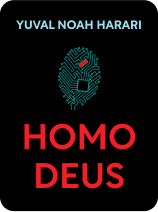

This article is an excerpt from the Shortform book guide to "Homo Deus" by Yuval Noah Harari. Shortform has the world's best summaries and analyses of books you should be reading.
Like this article? Sign up for a free trial here .
How and why was organized religion created? What role did the invention of writing play in the creation of religion as a centralized system of belief?
According to Yuval Noah Harari, the main impetus to the creation of religion as a centralized system of belief was actually the invention of writing. Writing allowed leaders to create a universal holy text to validate the story of divine guidance for the masses to follow.
Keep reading to learn about the creation of religion.
The Creation of Religion: How Faith in the Supernatural Was Born
The creation of religion dates back to prehistoric times. However, religion as an institution did not exist until the invention of writing.
Before writing was invented, people had to rely solely on the words of priests for spiritual guidance. However, these priests had no way of remembering everything their divine beings required, and thus they couldn’t create a centralized system of belief.
Writing allowed humans to organize themselves into complex structures. This is most apparent with religion. By creating a “holy text,” powerful leaders created a version of reality that could be shared and followed by large groups of people. Because many use religion as their guide to reality, religious founders could dictate the way they wanted people to behave and interact by claiming that a “divine being” demanded it, referencing the holy scriptures.
When these texts were at the height of their popularity, those who obeyed religious teachings were rewarded, either with promises for the afterlife or earthly power. Skeptics, on the other hand, were labeled heretics and killed for their rejection of the holy teachings.
While it may be easier in the modern era to reflect on historical religious behavior as “extreme,” try looking at it from the perspective of someone in that era. For example, if every successful person you knew was a devout Christian, you might be more willing to believe that Christ is the path to success. If you then followed the laws of Christianity and became successful, that would likely solidify your beliefs in the Christian teachings. If someone were to then be punished for challenging Christianity, you would probably accept their fate as the result of their sins.
Theistic religions gained more popularity than animist or pagan cultures because they created stronger meaning through divinity. Theistic texts told their followers that they were the “chosen” ones, and that, by following the laws of a divine being, they would be given great rewards for all eternity. These perspectives developed strong narratives still believed to this day.
For example, many ancient scriptures insist that women are meant to be subservient to men. For a long time, this belief restricted women from holding jobs, appearing in court, or having individual rights. While many have rejected this idea in the 21st century, a large number of churches and mosques still teach this perspective, instructing their followers to obey.

———End of Preview———
Like what you just read? Read the rest of the world's best book summary and analysis of Yuval Noah Harari's "Homo Deus" at Shortform .
Here's what you'll find in our full Homo Deus summary :
- Why technology is replacing humanist ideals
- How previous generations relied on prayer to deal with serious problems
- How AI and algorithms are going to run the world






